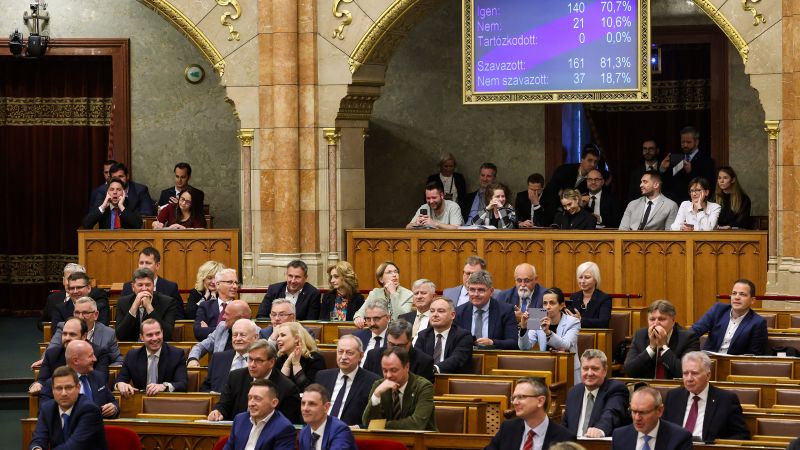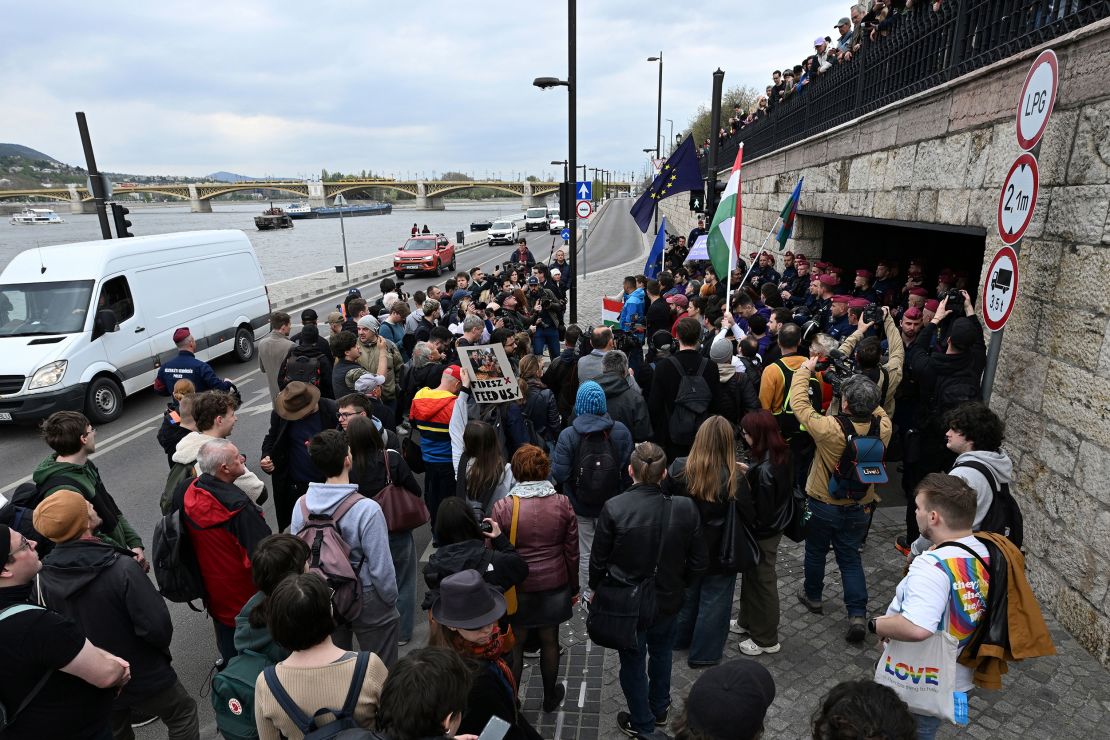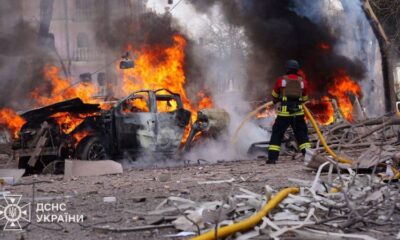CNN
—
Asked why she and other Ukrainian people choose to keep living under Russian occupation instead of fleeing, the woman paused for a moment.
“I don’t know how to explain the feeling,” she said. “It’s like you just can’t believe that evil could win. Even after three years, people can’t believe that this is it. They still believe that the occupation will end. That’s why they are still staying here and not running away.”
The woman, a member of the all-female resistance group Zla Mavka, lives in a city in southeastern Ukraine that fell under Russian control just days after Moscow launched its full-scale, unprovoked invasion of the country in February 2022.
Zla Mavka – which translates as Angry Mavka, Mavka being a female forest spirit in Ukrainian folklore – engages only in non-violent activities. But taking part in any form of protest and speaking to Western media is extremely dangerous, which is why CNN is not publishing the woman’s name or location.
She told CNN that life under Russian occupation is exhausting and incredibly scary.
“You can be arrested for anything. You have to worry about everything. You have to check your phone, you have to check what you have in your apartment, you have to hide a lot of things, you can’t say what you’re thinking and you cannot trust anyone,” she said.
US President Donald Trump has made it clear that he wants the war in Ukraine to end, even if it means further territorial loses for Kyiv. Trump has said it was “unlikely” Ukraine would get all of its pre-war territory back, saying: “(Russia) took a lot of land, and they fought for that land, and they lost a lot of soldiers.”
This could include the Zla Mavka woman’s hometown.
“People abroad always talk about territories, and they forget, maybe, that it’s not only about territories. It’s about people. And people here are still waiting. People have not moved, and they don’t want to move. And why (should) they have to move from their homes?” the woman said.
Russian forces currently occupy nearly a fifth of Ukraine’s territory, home to about 6 million people, including 1 million children, who are living in what the United Nations has described as a “bleak human rights situation.”
Stepan, a 22-year-old Ukrainian man who recently escaped from an occupied area in southern Ukraine to Kherson, which is under Kyiv’s control, has experienced firsthand what the occupying forces are capable of.
Stepan and his parents were detained by Russian troops in summer 2022. He was held for two weeks and repeatedly beaten and tortured with electricity. His parents were held for several more months.
None of the family was ever told why they were being detained. They have never been convicted or charged with any crimes.
When Stepan was released, he was separated from the rest of his family. He ended up on the left bank of the Dnipro River, which is still occupied by Russia. His mother Olha managed to escape to a government-controlled area after she was released in spring 2023.
“I was very afraid,” Stepan said of his time living under occupation. “Whenever I went outside, I looked around to see if they were there to take me away again or do something to me. I wouldn’t leave the house if I didn’t have to. It was like that every day,” he told CNN.
Stepan was lucky – he managed to escape and was reunited with his family last month. He was brought back thanks to a “coordinated effort” that involved the “Angels,” a Ukrainian special forces unit that rescues vulnerable people from occupied territories, according to Roman Mrochko, the head of Kherson City Military Administration. Stepan and his family said they were not allowed to share details of the operation.
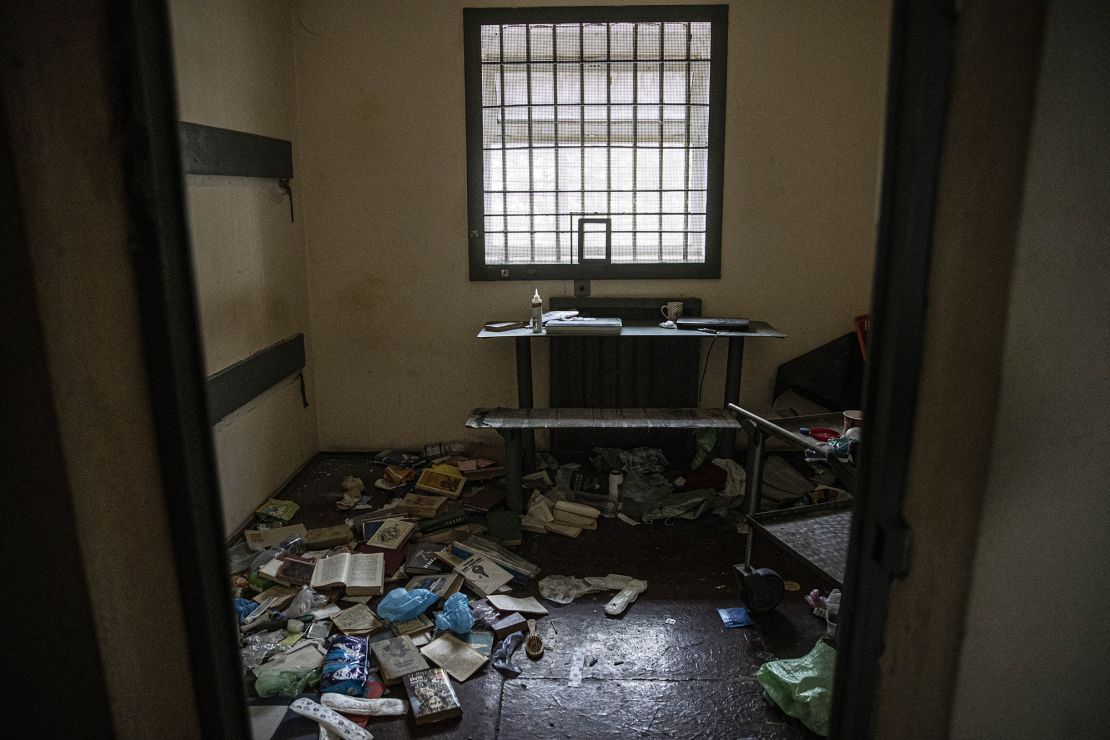
Both Stepan and the Zla Mavka member said that even the slightest suspicion of being “pro-Ukrainian” can have dire consequences for people living under occupation.
“My friends and acquaintances were often taken away because they did not want to get a Russian passport or for not registering for military service. They were taken away and brought back a week later with broken arms and legs, sometime heads. There were many, we are talking about dozens of people,” Stepan said.
Human rights groups say that Moscow has intensified its campaign to “Russify” occupied Ukraine in recent months, likely to stake claim to the areas in any future peace negotiation.
“They try to remove anything Ukrainian from our city, from the language to traditions,” the Zla Mavka woman said, adding that the group has made it one of its missions to keep Ukrainian culture alive under occupation.
“We are spreading Ukrainian poems and the works of Ukrainian authors, and (celebrating) Ukrainian holidays, the traditional ones, just to remind to everybody that this is not Russia, and never was, and never will be,” she said.
She described living in the city like “getting into a time machine and going back to the USSR.”
“There’s propaganda and Soviet-style monuments, and Soviet holidays, and we are always waiting in lines, like in Soviet times, to get help, or to go to the doctor, or to get some documents, you have to wait in these long lines and there are no normal shops and no brands… just stuff you can get in the street markets and some strange Chinese products.”
Russian authorities have been meticulously erasing Ukrainian national identity, religion and language in occupied Ukraine. They have staged sham referenda on joining Russia and have been forcing the local population to become Russian citizens.
Last month, Russian President Vladimir Putin signed a new decree ordering Ukrainian citizens living in these areas to “regulate their legal status” by adopting Russian citizenship. According to the decree, those who don’t do so by September will become foreigners and will only be allowed to stay for limited time.
But Moscow has already effectively coerced many Ukrainian people into accepting Russian passports because life is nearly impossible and very dangerous without them.
Those who don’t have Russian documents face the daily threat of arrest and deportation to Russia, have no right to work, no access to even the most basic health services or pensions and are barred from owning property.
“You can’t even call an ambulance without (a Russian passport). If you don’t have a Russian passport, the ambulance will not come,” the resistance woman said.
Human rights watchdogs have repeatedly said that Moscow is breaking international law by forcing the Ukrainian population to adopt Russian passports.
“And then the big problem for men, the men who (were forced to get) Russian passports, they are now trying to mobilize them into the Russian Army. They want to force them to fight against their own people,” the woman added.


Millions of Ukrainians are refusing to leave their homes in occupied territories – most because they still believe that Kyiv, with the help of its Western allies, will eventually liberate all its land.
There are also some who sympathize with Russia and are happy with the new regime – although both the Zla Mavka woman and Stepan said they believe this is only a small minority.
“These are often people who did not have a very good life before. For example, they didn’t have education and didn’t have a good job, but now, if they cry out loud ‘I love Russia,’ they will get a job in the government, they will get help and money from Russia,” the Zla Mavka member said.
SOS Donbas, a Ukrainian helpline for people living in occupied territories and combat zones, received more than 57,500 calls last year. Violeta Artemchuk, the director of the organization, said most people are asking for advice on how to leave safely, how to access help and what are the implications of staying and being forced to take a Russian passport.
The Ukrainian authorities have repeatedly told people in occupied areas to do whatever they need to stay safe.
“If you need to get some documents, get them. This does not change your status,” Heorhii Tykhyi, a foreign ministry spokesperson, said after the decree requiring Ukrainians in occupied territories to become Russian citizens was announced.
Tykhyi said that “the best solution, if possible, is to leave for the controlled territory of Ukraine.”
But for many, leaving is impossible because it’s too dangerous, too expensive and too treacherous.
“Theoretically, it’s possible to leave, but you have to go through filtration,” the Zla Mavka woman said, referring to a security screening process conducted by Russian forces on all exits from the occupied areas.
“They’re checking everything there, so… let’s say there is a woman whose husband was a soldier in 2014, and if they find out, she will have a huge problem, so for her, it is safer not to try. But this could be anything, like a comment on social media, something on your phone, they can just arrest you and deport you to Russia,” she said.
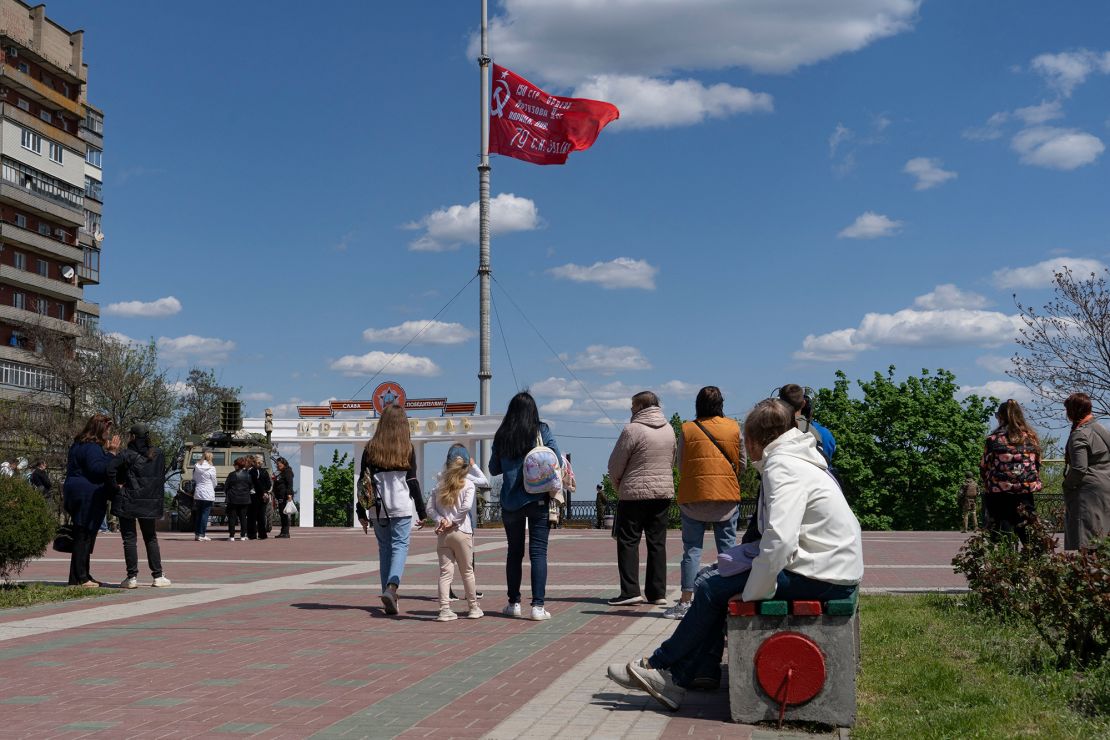
Thousands of Ukrainian citizens have been illegally detained and sent to Russia, and CNN has documented cases of people who were picked up at Russian filtration points and subsequently sent to facilities thousands of miles away from Ukraine.
It is impossible to cross directly from occupied Ukraine into government-controlled areas, which means that anyone wishing to flee must travel through Russia, get out of Russia and then travel through Europe back to Ukraine.
“It’s not easy to leave everything and become a refugee. You can’t sell your apartment, you cannot cross the border with a large amount of money, you can’t take much… so it is possible, but not for everyone,” the woman said.
So, for now, she and millions of others are staying and watching the news coming from the White House and elsewhere in horror.
“People are very nervous and they’re very afraid to hear about a negotiation, and how our cities will become Russia, this is the biggest fear. But I can tell you that even if this happens, resistance won’t stop.”


